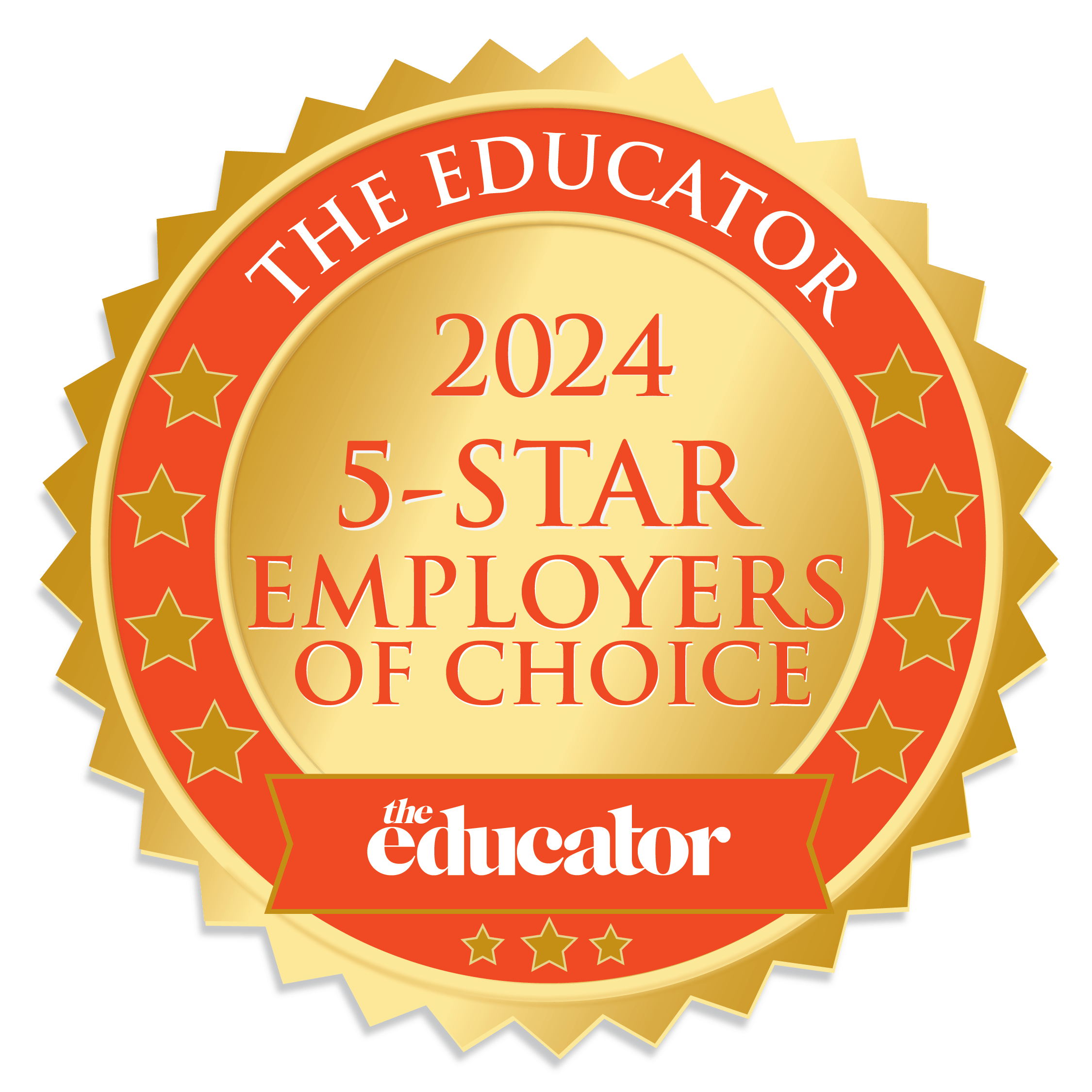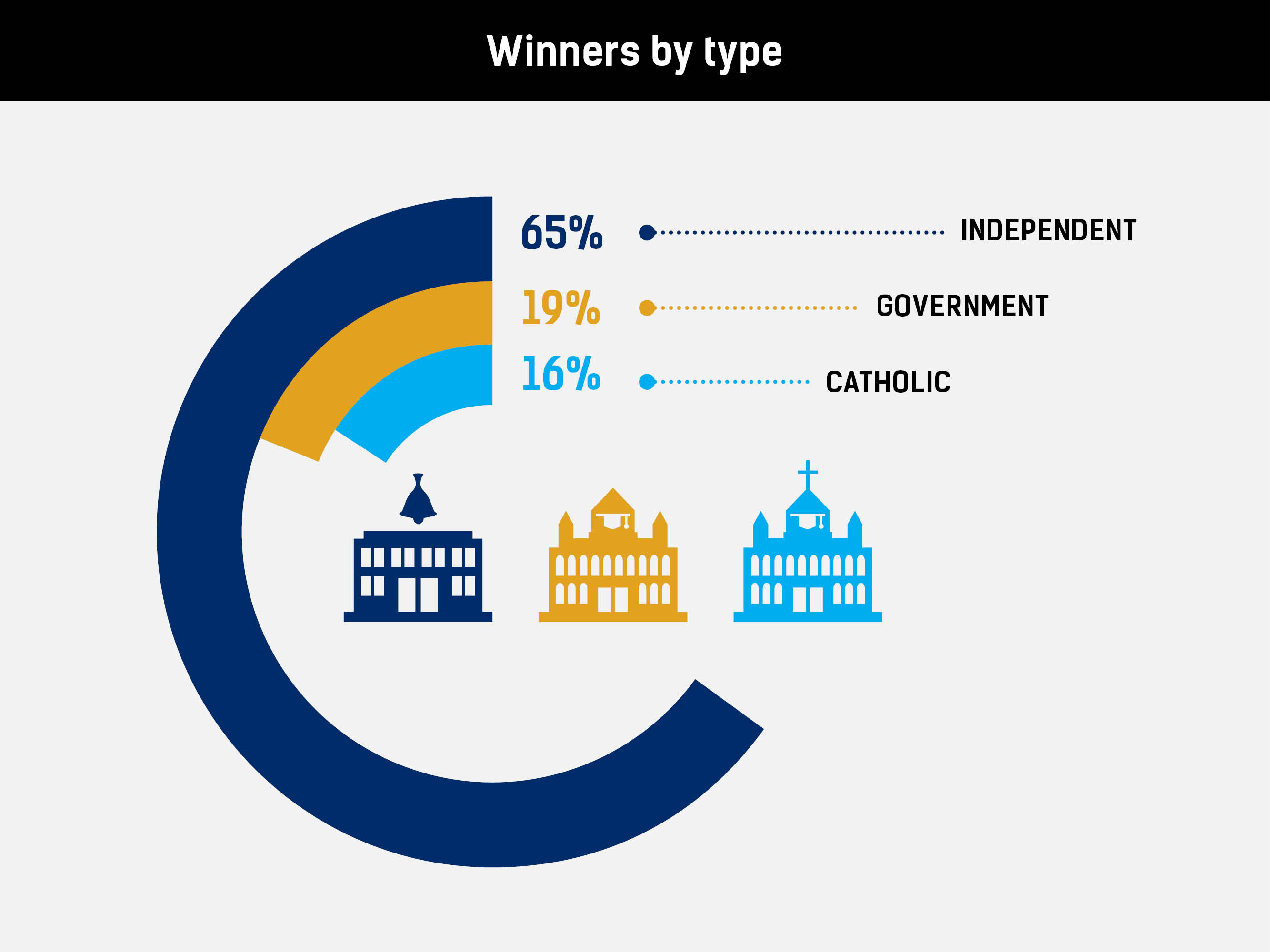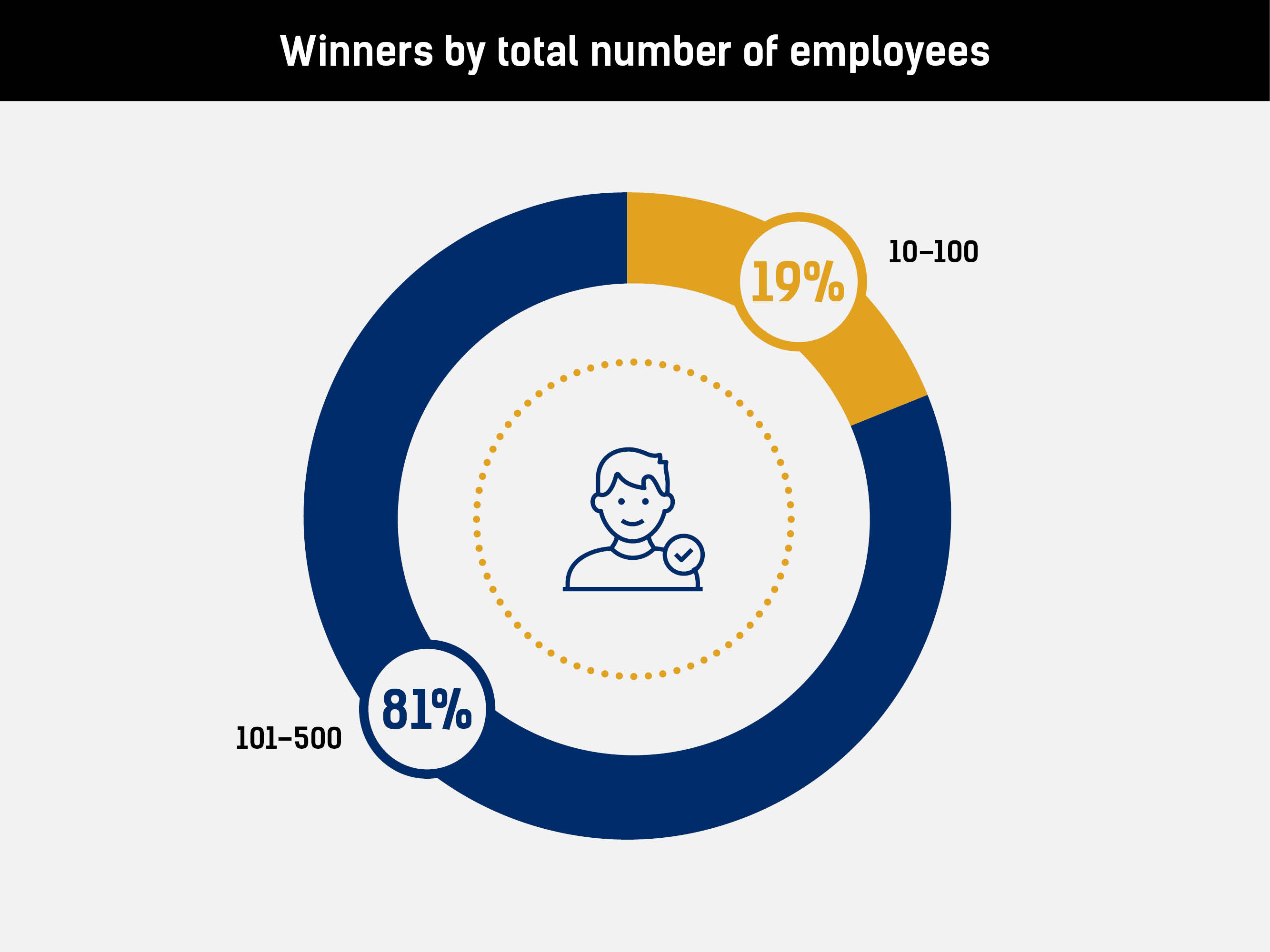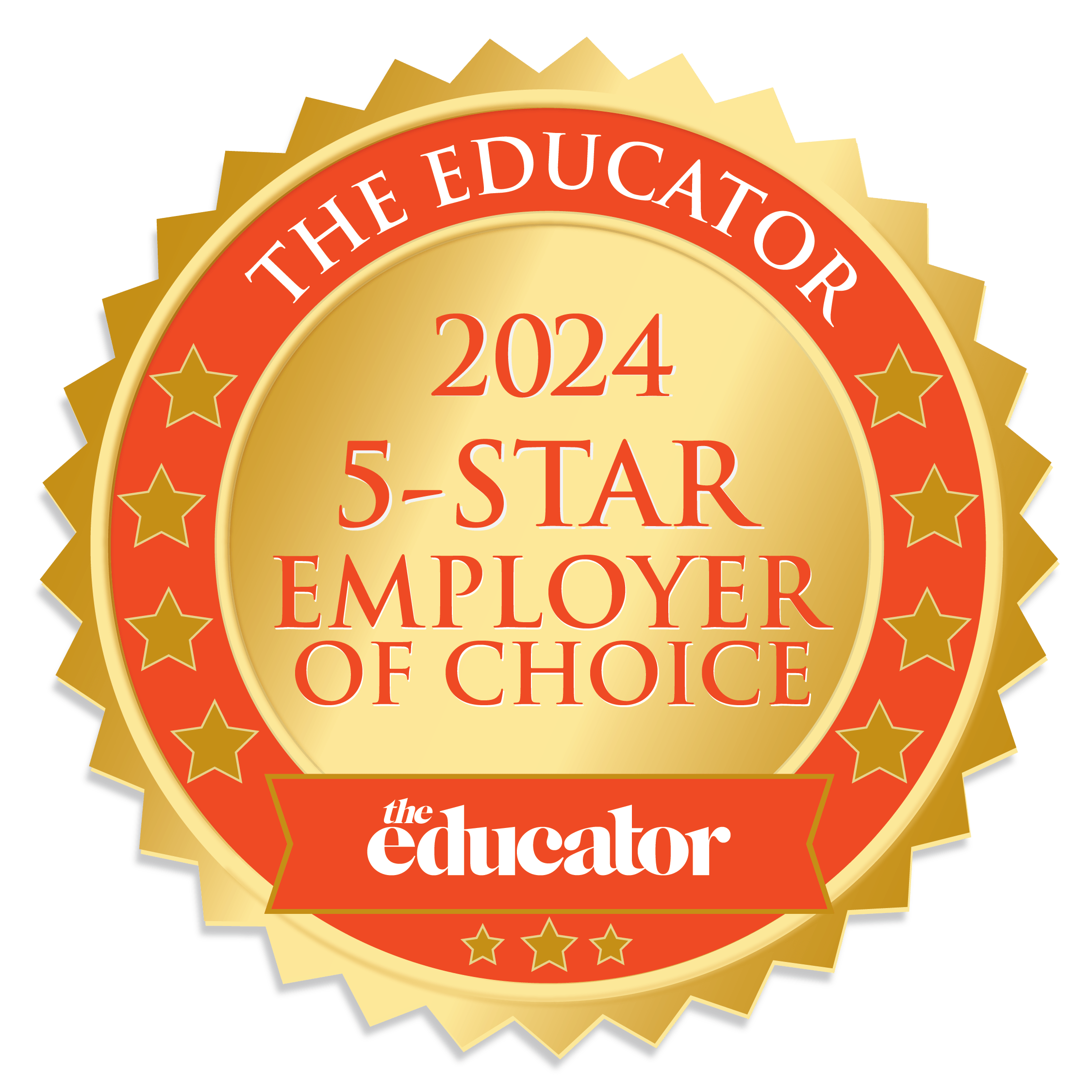- K/12
- Higher Education

Best Schools for Teachers in Australia |
5-Star Employers
Jump to winners | Jump to methodology
Centres of excellence
A school’s biggest asset is its staff. They are the ones who give the resources, facilities and tools meaning by using them to provide students with the best education possible.
The Educator’s 5-Star Employers of Choice 2024 recognises the schools at the vanguard of this movement, supporting and understanding the needs of their staff.
Each has their own way of doing it, but all are united in their belief in striving to create exceptional workplaces.
Westbourne Grammar School
Location: Truganina, Victoria
Year founded: 1867
Male/female staff %: 30/70
Hierarchy is not prioritised; instead, there’s a focus on a shared path to support staff in the best way possible.
“It is about trying to look at the different stakeholders and spending as much time with them as I can,” says principal Adrian Camm. “But it doesn’t all sit with me, and it shouldn’t. We have a distributed approach and give everyone a seat at the decision-making table. The traditional hierarchies and silos in schools are actually too slow; they create bottlenecks, and they actually exclude people. We want it to be inclusive, move at a really fast rate and also empower people.”
Professional development is something Westbourne places an emphasis on. Staff can take advantage of:
- substantial internal and bespoke professional learning programs
- flagship program Learning to Lead, six-month duration to develop capacity and capabilities irrespective of where staff are in their leadership journey
- annual Westbourne Fellowships valued at $10,000 to travel internationally
- executive coaching for senior leaders from external experts
- generous professional learning leave and allowances for staff to attend external professional learning
- graduate teacher support program

However, nothing is mandatory; it’s all opt-in.
“If you force someone who doesn’t actually want to do it, the chances of them actually taking anything meaningful away are very small,” adds Camm.
The flagship program Learning to Lead has finished its second round and saw 150 staff members complete the course. Part of the motivation is to help solve the lack of middle- and senior-level leaders in the Australian education sector.
Camm says, “But more specifically to us, we think everyone is a leader. We equip staff with the skills, tools, attitudes and attributes to be able to lead and manage well, even if they’re only aspirants or leading small teams.”
And he continues, “The outcomes of that have been quite remarkable. We’re seeing innovation coming from everywhere, top-down and bottom-up. People are contributing to the advancement of the school irrespective of what position they hold.”
Westbourne’s fellowships also have a proactive edge and are not entirely focused on formal conferences. Recent examples include:
- teachers travelling into the Borneo jungle to learn about art techniques from ancient headhunting tribes
- drama teachers spending time in New York working side by side with Broadway production directors


Adrian CammWestbourne Grammar School
The school also doesn’t conduct annual performance reviews, as it believes this isn’t the best way.
“They can have a place, but because the world moves so quickly nowadays, we need to adopt a culture of constant feedback and continual conversations in the moment and equip our people with the skills to be able to do that,” says Camm.
This allows staff to learn regularly and discuss matters openly, rather than condensing them into a single annual event.
The overriding ethos at Westbourne is to create an environment for staff to thrive.
Camm adds, “We believe that people come first, so we make sure that we live that, budget for it and build it into our forecasting and way of working. We want to provide people with opportunities.”
John Paul College
Location: Daisy Hill, Queensland
Year founded: 1982
Male/female staff %: 32/68
Resolute in its belief of ensuring its people are looked after, the school follows the salary benchmark of Education Queensland +4% premium. This means, as of July 2024:
- senior teacher: $126,019 + super
- heads of year and heads of faculty: $147,229 + super with a 0.4 FTE time release
Principal Craig Merritt says, “It’s been that way for 30 years; we’ve just always paid a premium to what teachers in government schools get.”
Along with financial support, the school is similarly proactive in enabling staff to prosper. This is driven by leadership development and aspiring leader pathways, which are multifaceted.
The deputy principal (culture and compliance) has implemented a leadership program for individuals with leadership aspirations, addressing topics such as:
- How do you build a leadership presence and develop your brand?
- How to demonstrate ethical leadership?
- How do you interview for promotional opportunities?
- How do you approach and conduct challenging conversations?

There are other courses involving communication skills, managing resolution and leading change.
In addition, two of the school’s deputies have been supported on external courses run by Independent Schools Queensland and the Association of Heads of Independent Schools of Australia.
“We have this culture of supporting and enabling leadership development opportunities for our people, and they can actively pursue developmental options that work best for them, their personal circumstances and their professional aspirations,” explains Merritt.
JPC actively enables “acting up,” meaning that if a staff member has accrued long service leave, a more junior aspirational leader assumes their role during that period.
“We quite intentionally manage these opportunities, and then we support it with training and mentoring. We have created this momentum around facilitating leadership opportunities,” adds Merritt. “It’s an approach to building a sustainable leadership pipeline.”
Showing its mettle as a 5-Star Employer, despite only being 42 years old, JPC has two staff members with 37 and 38 years of service, respectively. Everyone works in a calm environment, as the school has no bells and the bushland campus is surrounded by nature.
Merritt says, “Our new staff express their appreciation for the support they get. We wrap care around them from the induction and say, ‘These are the values; this is the ethos; and this is how we work’. We spend a lot of time at the beginning sharing the John Paul College way.”


Craig MerrittJohn Paul College
Staff also benefit from:
- service and loyalty recognition programs at milestones of 10/15/20/25/30/35 years
- awards to nominate Teacher of the Year and Support Person of the Year
- Employee Assistance Program (EAP) for staff and family unit
- salary sacrifice and financial wellness activities to assist with the cost of living
- consultative, wellbeing and Workplace Health and Safety committee develop and implement initiatives
- special paid leave in the event of natural disasters provided on a case-by-case basis
Quality is of paramount importance to JPC.
“If you look after the basics, the foundations are there for everyone to thrive,” says Merritt.
And underscoring how consistent excellence is their calling card, Merritt adds, “There’s no big shiny thing or us announcing ‘we’re the best’. We set out to provide a positive employment experience at a very high standard and live by good people practices.”
Hills Grammar
Location: Kenthurst, New South Wales
Year founded: 1982
Male/female staff %: 17/83
“The number one purpose of education is students’ learning and wellbeing, but if we don’t get teacher wellbeing right, then we won’t get students performing and loving school. I sometimes think that gets a little lost,” says principal Karen Yager.
To carry this out, Yager, who joined Hills Grammar in 2022, has made boosting teacher wellbeing one of her KPIs, measured with a qualitative survey.
She says, “It’s lifted by about 11%, which considering how teachers are feeling at the moment, with the teacher shortage looming or already existing, I feel really grateful that they feel that way about this school.”
Hills Grammar operates on a 10-year masterplan, and part of this is driving staff development via initiatives such as:
- investment in bespoke professional learning for teaching and non-teaching staff
- extensive professional learning programs represented in a school-wide staff development framework comprised of six interlinking programs to provide staff with a quality, synergetic and transparent pathway for learning, innovating, building and aspiring to further enrich student learning
- PL learning centre provides community engagement and leadership opportunities delivered through four hubs:
1. research and practice nito
2. innovation
3.leadership
4. teacher excellence
“Everything we do for staff is grounded in a sense of relatedness and belonging,” explains Yager. “If they don’t feel they have mastery, and that comes down to the type of professional learning we offer and the way we work together, then that relatedness is not going to work. It’s really important; it all leads to what we call collective efficacy, as we’re in this together.”
Proving how much of a collegiate atmosphere there is, Hills Grammar has dispensed with annual performance reviews.
Yager says, “I listened to this amazing person, and he said, ‘What does your gut tell you? What does the data tell you? And what are you seeing and hearing?’ That’s the measure of the school, and I don’t need a piece of paper to tell me that.”


Karen YagerHills Grammar
Instead of having staff complete professional growth plans, they have one-to-one meetings with the coordinator of professional practice along with classroom observation. The focus is on generating feedback related to the person’s professional learning goals.
Hills Grammar devotes resources to analysing data together to take meaningful action.
“We evaluate the outcomes as if it’s about making a difference. John Hattie said, ‘Even with teachers just working together collectively, that makes the greatest difference of all, because you’ve got the support of your colleagues’. We are learning from each other from a first-year teacher to a highly experienced teacher, and I want that to continue and grow,” says Yager.
Mentoring is also part of the Hills Grammar culture. It’s deployed for staff at all levels of experience, with a focus on reciprocity.
Yager adds, “It validates what you do, and it makes you better at what you do. The mentor gets as much out of it as a mentee.”
Other benefits on offer to staff include:
- access to fitness centre with trained staff
- wellbeing week
- choose-your-own adventure professional learning program
Best Schools for Teachers in Australia | 5-Star Employers
- Abbotsleigh
- Bellbird Park State Secondary College
- Cobram Secondary College
- Kilbreda College
- Maryborough State High School
- Mentone Girls’ Grammar
- Mount Sinai College
- Queenwood
- St Margaret’s Anglican Girls School
- St Margaret’s Berwick Grammar
- Stuartholme School
- Toorak College Mount Eliza
- Toowoomba Grammar School
- Unity Grammar
- Warringa Park School
Methodology
To find the educational establishments that have offered the best employee experience in the past year, The Educator first invited schools to participate by filling out an employer form, which asked schools to explain their various offerings and practices. Next, employees from nominated schools were asked to fill out an anonymous form evaluating their workplace on a number of metrics, including benefits, compensation, culture, employee development and commitment to diversity and inclusion. To be considered, each school had to reach a minimum number of employee responses based on its overall size. Schools that achieved a 75% or greater average satisfaction rating from employees were named 5-Star Employers of Choice for 2024.














